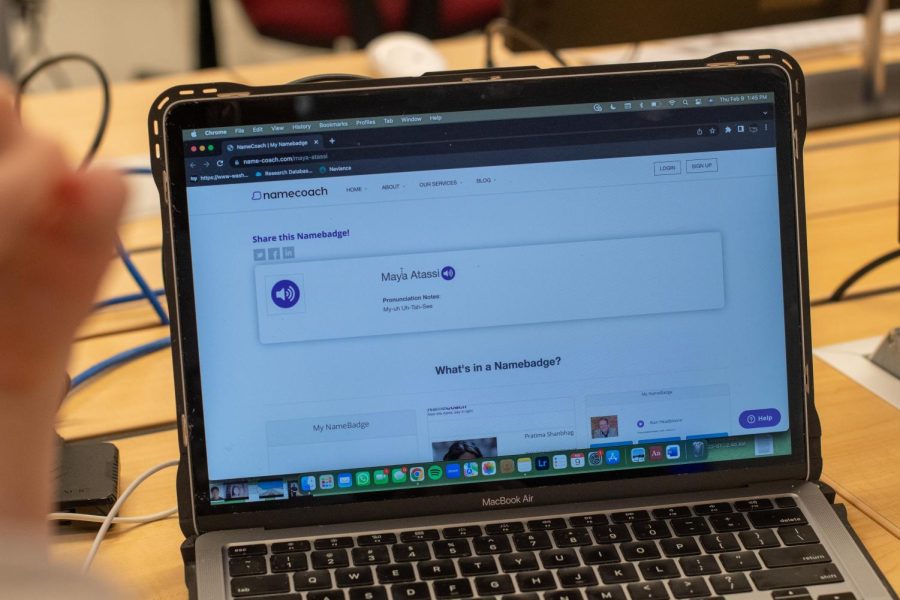Students experience discomfort due to mispronunciation of names
Mispronunciation of names and foreign names is common in the classroom, causing discomfort for some students.
February 24, 2023
A hush falls over the class as the teacher enters the room. Students orient themselves and pull out their materials as the teacher begins reading off the attendance. Half way down the list comes an unmistakable pause, leaving a student cringing in their seat as the teacher brutally mispronounces their name. It’s halfway through the year.
Mispronunciation of foreign words and names in the classroom is a long standing issue at U-High that many students who share this common experience want to see acknowledged and ultimately fixed.
Senior Kriti Sarav has experienced the mispronunciation of her name for her entire life, and noted how much she appreciates the effort individuals put into pronouncing it.
“I think names are really important, and when someone says your name, and isn’t scared of saying your name, I think it makes me feel more comfortable in the classroom,” Kriti said.
Kriti explained the discomfort she felt in a class where the teacher simply avoided saying her name the whole year, and the effect it had on her classroom experience.
“I understand it can be challenging,” she said, “but it’s not something that goes unnoticed.”
It’s not just names that students are noticing the mispronunciation of, it’s much more. In history class students hear the names of countries pronounced in what has been deemed an “American accent.” In English class students see the accurate pronunciation of the author’s and characters’ names are often disregarded.
Senior Maya Attassi believes the disregard isn’t malicious or intentional but thinks that taking the time to acknowledge and practice pronunciation would have a positive impact on a classroom learning environment.
“Taking the time to learn how to pronounce something in the native language brings more engagement to what you’re learning,” she said, “and more engagement brings more understanding.”
History department chair Christy Gerst has put a lot of effort into maintaining accurate pronunciation in her classes, and it’s an effort that hasn’t gone unnoticed as many students have voiced their appreciation of it.
“I try to ensure I’m making a good faith effort at mastering my students’ names,” Ms. Gerst said.
Ms. Gerst makes this effort by asking students to record a video of themselves pronouncing their first and last name at the beginning of the school year. She then practices the pronunciation to the best of her ability.
“I’m not perfect, I make mistakes,” Ms. Gerst said, “but I think it’s about the stance you take having a committed policy, and that extends to the content, too.”
The history department faculty and specifically those who teach AT Modern European History have committed to providing an audio option for most readings, and have ensured that these audio recordings include correct pronunciation of the topics being studied. They believe that this will help students themselves to begin practicing accurate pronunciation ahead of in-class Harkness discussions.
Ms. Gerst is also promoting accurate pronunciation in the AT Comparative Politics and Global Relations class she teaches, and asking students to include correct pronunciation as a part of their research for a class project.
“I guess my answer is research and good faith,” Ms. Gerst said.
Lab students ask that both teachers and students alike practice this good faith effort in order to strengthen the learning environment and student comfort levels in class.
“The effort people put in doesn’t go unnoticed,” Maya said. “We notice, and it really means a lot.”




























































